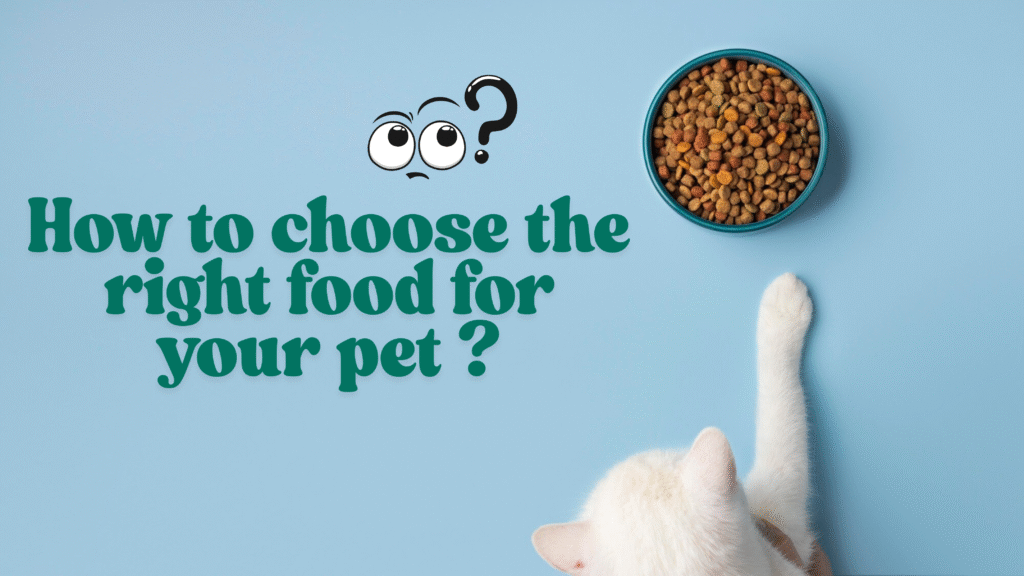Choosing the right food for your pet is a vital decision that can have a profound impact on their overall health, well-being, and quality of life. With numerous options available in the market, it can be daunting to determine the best food for your pet. To make an informed decision, it’s essential to consider your pet’s individual needs, including their age, breed, size, health status, and lifestyle. For instance, puppies and kittens require a diet rich in protein and calories to support their growth and development, whereas adult pets may require a more balanced diet that maintains their optimal weight and health. Senior pets, on the other hand, may benefit from a diet that includes joint support and easier-to-digest ingredients to alleviate age-related issues.

When selecting a right food for your pet , it’s crucial to look for high-quality ingredients that provide the necessary nutrients for your pet’s optimal health. Named protein sources, such as chicken, salmon, or beef, are excellent choices, as they provide essential amino acids that support muscle growth and maintenance. Whole grains, fruits, and vegetables are also excellent sources of fiber, vitamins, and minerals that promote digestive health and overall well-being. Conversely, it’s essential to avoid fillers, by-products, and artificial preservatives, which can be detrimental to your pet’s health. Fillers, such as corn, wheat, and soy, provide little nutritional value and can cause digestive issues in some pets. By-products, on the other hand, are often low-quality ingredients that can be contaminated with toxins and heavy metals.
In addition to choosing high-quality ingredients, it’s also important to consider your pet’s dietary needs and preferences. Some pets may require grain-free or gluten-free options due to food allergies or sensitivities. Others may benefit from a diet that includes specific ingredients, such as omega-3 fatty acids, that support skin and coat health. Consult with your veterinarian to determine the best right food for your pet, as they can provide personalized recommendations based on your pet’s specific needs and health status. Your veterinarian can help you navigate the complex world of pet food and ensure that your pet receives the nutrients they need to thrive.
When reading pet food labels, it’s essential to look beyond marketing claims and focus on the ingredient list and nutritional content. Look for foods that meet your pet’s nutritional needs, and be wary of claims that seem too good to be true. Some pet foods may claim to be “natural” or “holistic,” but these terms are often undefined and may not necessarily translate to better nutrition. By taking the time to read labels carefully and understand what you’re feeding your pet, you can make informed decisions that support their optimal health and well-being.
Ultimately, choosing the right food for your pet requires patience, research, and consultation with your veterinarian. By considering your pet’s individual needs, selecting high-quality ingredients, and avoiding fillers and by-products, you can provide your pet with the nutrients they need to thrive. A well-nourished pet is a happy pet, and with the right food, you can help your pet enjoy a long, healthy, and happy life. By prioritizing your pet’s nutrition, you can build a strong bond with them and ensure that they receive the care and attention they deserve.